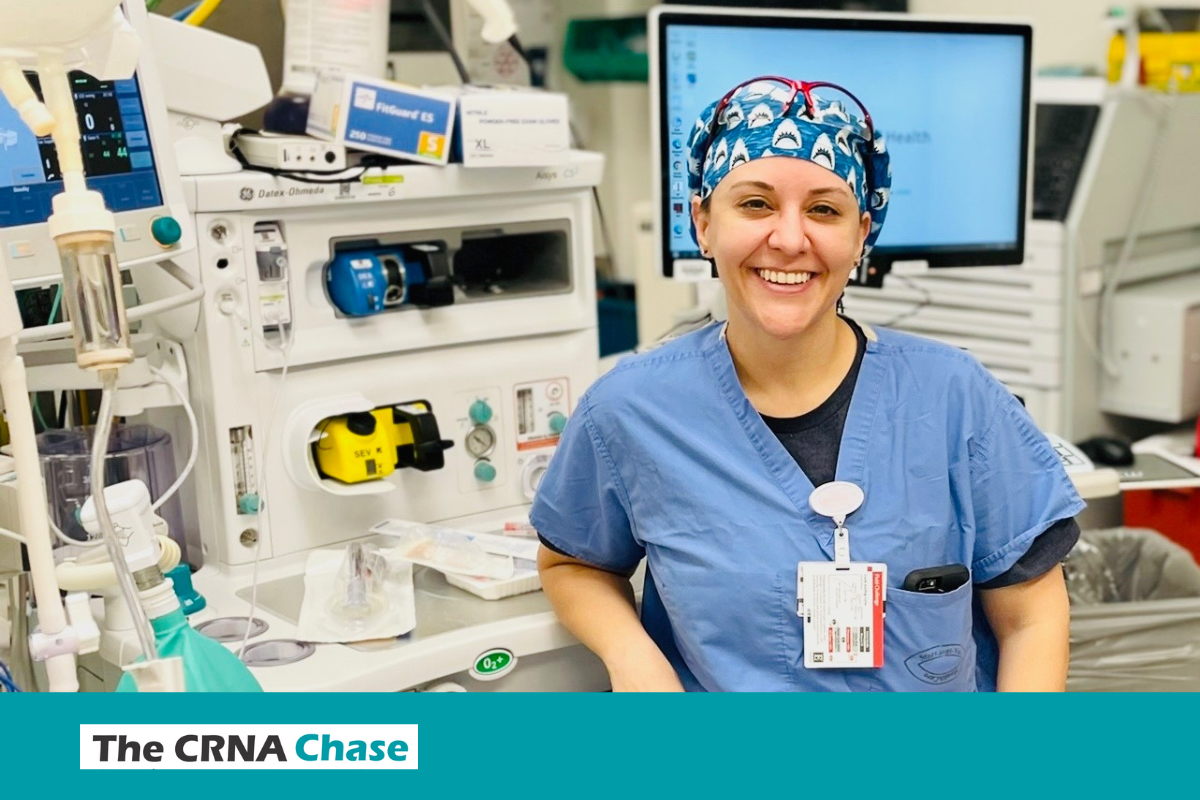Do you know what it takes to become a Certified Registered Nurse Anesthesiologist (CRNA)?
The Nurse Anesthesia school admissions process is extraordinarily time-consuming and highly competitive and anyone considering this path should expect it to take a number of years. For the 4,000 available seats in the 124 Nurse Anesthesia programs at the time, there were close to 20,000 applications submitted in 2020. There are about 130 programs available today, making admission even more difficult. into.
There are specific requirements that must be met in order to be considered for admission to a doctorate-level Nurse Anesthesia program. Each Nurse Anesthesia program is unique, and the requirements may differ. This is why the steps to becoming a CRNA are not black and white. There is no perfect cookie-cutter way for critical care nurses to follow.
Nurse Anesthesiologist Salary and Job Outlook
The average nurse anesthetist’s salary is $203,090, according to the Bureau of Labor Statistics (BLS) Occupational Outlook Handbook as of May 2022. The amount you’ll be paid will vary depending on where you work and where you live. The average pay can be strongly influenced by the demand in your area.
Certified Registered Nurse Anesthesiologists have a bright future; according to the Bureau of Labor Statistics, the employment of Nurse Anesthesiologists is predicted to grow by 45% from 2020 to 2030.
Steps to Becoming a CRNA
- Explore your options
- BSN (Bachelor of Science in Nursing)
- A current U.S issued RN (Registered Nurse) License
- 1- 2 years of Critical Care/ICU experience within the last 2 years
- Cumulative GPA and science GPA of 3.0 or better
- GRE score of 300 or better
- Prerequisites: undergraduate statistics, biochemistry, chemistry, etc.
- Shadow a CRNA
- Obtain CCRN (Critical Care Nurse Registered Nurse) certification
- Certifications (BLS, ACLS, PALS)
CRNAs must complete a four-year undergraduate nursing program, along with a minimum of 1 to 2 years of critical care experience and 3 to 4 years of a Nurse Anesthesiologist program to learn the specialty. In other words, it takes between 8 to 10 years to become a fully licensed and certified Nurse Anesthesiologist.
Explore Your Options
Critical care nurses looking to embark on a rigorous and daunting career path in Nurse Anesthesia should definitely do some investigation of the profession. Since every Nurse Anesthesia program is different, begin by researching the schools and see what is required first. Also, seek out others already in the profession to learn more about the profession and what the day-to-day looks like for CRNAs.
Bachelor of Science in Nursing (BSN)
If you possess a Bachelor of Science in Nursing, you are off to a great start since it is required in over half of the 127 accredited Nurse Anesthesia programs in the United States and Puerto Rico. However, there are some programs that will also accept a bachelor’s degree in another related field of science.
Registered Nurse License
If your nursing license is current and U.S.-issued, you can choose to apply to any program you desire. After being accepted, you will be required to obtain an RN license in the state you will be practicing in while in Nurse Anesthesia school.
1- 2 years of Critical Care/ ICU Experience
The Council on Accreditation mandates Nurse Anesthesia programs accept only nurses with at least one year of critical care experience. However, this doesn’t mean you can’t apply before that one year if you have this experience prior to the start of the Nurse Anesthesia program. Still, the typical applicant has 3 or more years of this type of experience when they first apply.
The best candidates have gained tons of knowledge and skills from their ICU experience by maximizing their learning opportunities. Your critical care/ICU experience needs to be within two years of applying but most schools will only accept candidates currently working in ICU.
Perform Well Academically
Graduate school in general along with Doctorate level Nurse Anesthesia courses is very demanding and grueling. Even those students with a high undergraduate GPA of 4.0 find the coursework extremely challenging. Therefore, to be as competitive as possible and decrease attrition, programs typically accept students who demonstrate they can meet the high academic requirements.
Many Nurse Anesthesia programs will require a minimum of 3.0 GPA in the sciences and/ or your BSN program or in the last 60 units of your education. If your GPA is less than a 3.0 it may be harder to get an interview but not impossible. You will have to show you are strong in other areas or possibly retake courses you scored less than a B.
A Combined GRE Score of 300 or Greater
The Graduate Record Examinations (GRE) is a type of standardized test that is an admissions requirement for some graduate schools. The GRE measures verbal reasoning and quantitative relationships which is important in anesthesia practice.
Although there are some Nurse Anesthesia programs that do not require the GRE; the ones that do usually look for a minimum score of 300. Some programs may waive the GRE altogether if you possess a GPA above 3.4 or have a master’s degree.
Prerequisite Courses
There is a certain amount of preparation required prior to starting a CRNA program due to the intensity of the program. While the schools vary in terms of required prerequisites, there is some overlap between the programs. Below is a list of the most commonly required prerequisite courses:
- Statistics
- Chemistry
- Biochemistry
- Microbiology
- Research
- Physics
- Pharmacology
- Anatomy and Physiology
Shadow a CRNA
In order to understand what lies ahead, you must interact directly with a CRNA. Therefore, you should shadow a CRNA for a minimum of 8 hours, but I highly suggest 40 hours to get a better understanding of what a CRNA does. Also, keep in mind, that some programs may have different shadowing requirements.
Obtain Your CCRN
Attain additional certifications like ACLS, BLS, PALS, and CCRN. Obtaining these additional certifications demonstrates your determination for higher learning. According to the American Association of Critical-Care Nurses, the CCRN certification shows a mark of excellence and comprehensive national standard knowledge.
The CCRN certification is required for some Nurse Anesthesia programs and either way it will make you more competitive than the rest of the applicants. To stand out even more, I would focus on other specialty certifications like Cardiac Medicine Certification (CMC).
Seek Out Other Experiences
A CRNA school candidate who works in ICU and has good grades but hasn’t done anything else will likely not get noticed by the admissions committee. So it’s important that candidates do other things such as attend anesthesia-related courses or seminars and seek leadership opportunities in their current position.
Submit Your Application
Most CRNA schools begin interviewing candidates to fill up their Fall and Spring slots. However, you will find there are some CRNA schools that accept applications on a year-round or ongoing basis. So keep this in mind when applying. A completed application by the deadline may be submitted electronically or by mail and usually includes:
- ACLS
- BLS
- RN license
- Curriculum Vitae
- Unofficial or official transcripts
- CV
- Personal statement
- Letters of recommendation
- GRE scores
- Other professional certifications
- Non- refundable application fee
Regardless of the deadline, I recommend you submit your application as early as possible. Applications submitted are likely reviewed first and, therefore, you have a better chance of gaining an interview.
Be Invited to Interview
After submitting your application material, the admissions committee will decide whether to invite you for an interview. Every Nurse Anesthesia school has its own interview process they follow. Therefore, you need to prepare accordingly. Some programs may do 1 on 1 interviews while others may be group interviews. I personally believe if you make it to the interview then your performance in the interview will make or break your chances of acceptance.
Bottom Line
The path to becoming a CRNA is often long and arduous. Those who do get accepted have convinced the admissions committee they deserve a spot in their program and can handle the coursework. Remember these are merely suggestions and do not guarantee an interview or admission to any Nurse Anesthesia program since the ultimate decision rests with the admission committee. Still, I hope this article guides your next steps to CRNA school admission.







